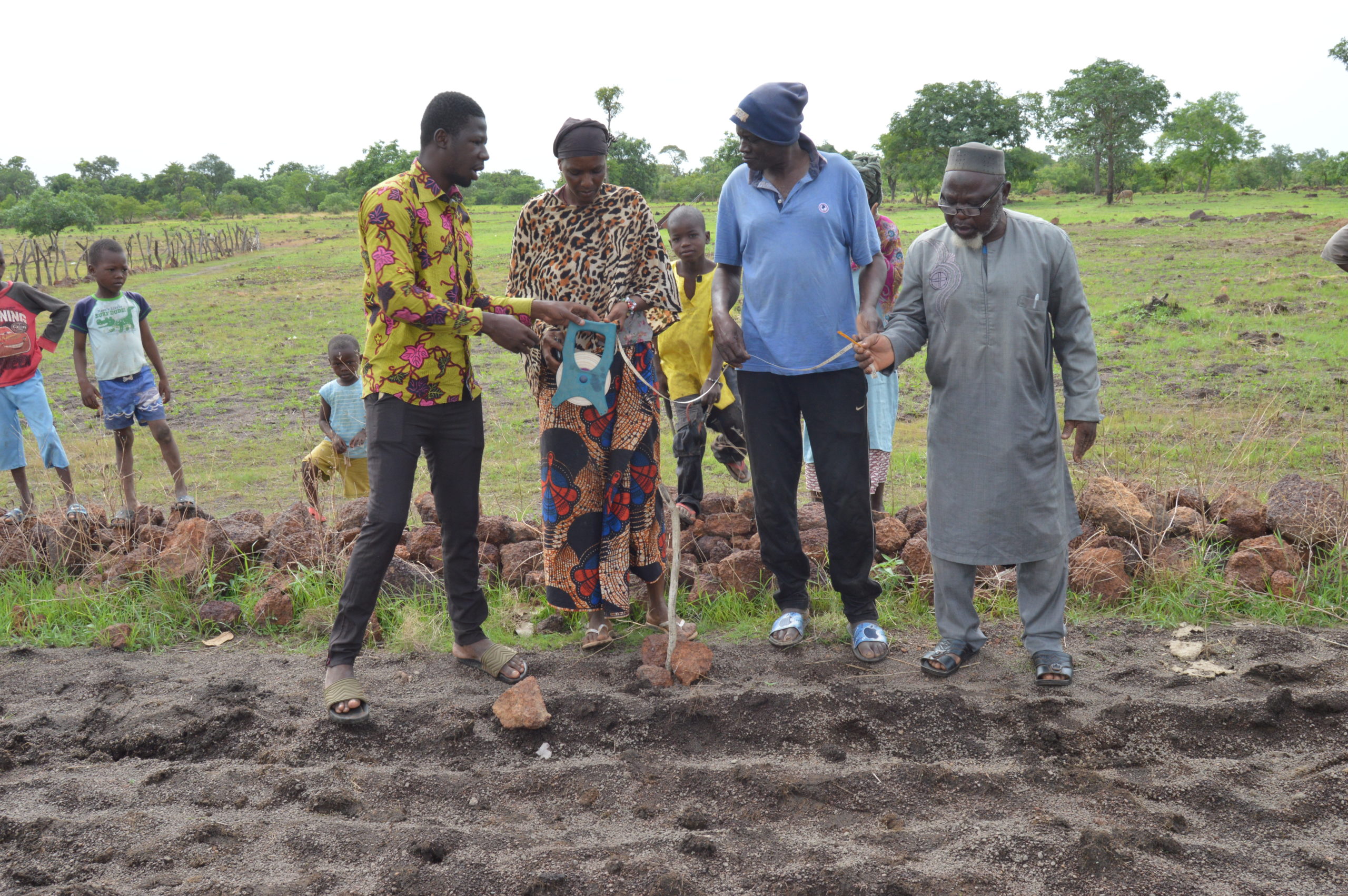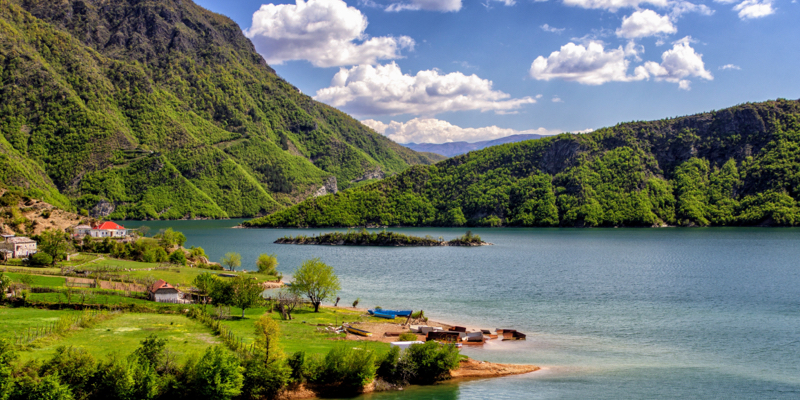- Sector : Sustainable Agriculture
- Location : Mali & Morocco
- Involvement : Potential Investment, TA

Overview
Yolélé Holdings supports smallholder livelihoods in Mali through climate-resilient agriculture. Sustainable African Foods (SAF), a Malian agro-processor, is partnering with Yolélé and the Climate-Resilient Farming Systems Program at Cornell University to develop an integrated value chain and sustainable and regenerative cultivation practices for fonio, an ancient, nutritious, drought-tolerant, West African grain, as the foundation for broad-scale cultivation of indigenous African foods.
This project serves to address the two major challenges to meeting the increasing demand for fonio: low yields and difficulties in processing the grain. The venture plans to promote smallholder capacity building through access to inputs and equipment, provide output finance and logistics support for smallholder sourcing, operate an industrial processing unit in Mali and establish an export and distribution hub in Senegal. The Company has unified production, collection, agriculture processing, distribution, and commercialization across three operating subsidiaries, with impact and commercial scale achieved through mechanization of the heating, decortication, and milling processes. Fonio, and other ancient, underutilized African foods can be grown on poor and shallow soils, in dry climates, and without irrigation; they can alleviate the continent’s reliance on imported wheat, rice, and maize. Yolélé’s smallholder-centric operations will expand cultivated acreage, the by products of which are improved livelihoods, more fertile soil, sequestered carbon, and greater food security.
The Challenge
The West African climate is characterized by low rainfall and increasingly frequent and intense droughts, resulting in widespread agricultural challenges. In order to meet the needs of the region’s growing population, many West African nations such as Mali and Sengal rely on imported grains and cultivation of widely-accessible crops, such as wheat, that are not well-suited for the climate. Recently, there has been a renewed focus on expanding the cultivation of traditional ancient grains from the region in order to meet the demands.
The fonio value chain in West Africa is not currently scalable. Smallholder farmers have low productivity and production due to limited access to inputs. Fonio cultivation through existing methods leads to harvest losses, barren arable soils; poverty, stagnant incomes, and poor nutrition. Furthermore, pre-processing (threshing, winnowing, cleaning, sorting, dehulling) without equipment yields a poor quality of grains. Current price is too high for urban dwellers to consume fonio as staple food, due to low-volume and high processing cost. Mali (and West Africa) suffers from a lack of formal processing units capable of producing grains that meet export standards and at scale; more than 100 small-scale, pre-processors of local cereals use low-volume equipment with poor quality control mechanisms. Poor product quality limits consumer demand. These combined challenges provide little incentive to the smallholder farmer to increase her cultivated area beyond the family’s consumption needs. A massive swath of arable West African land lays fallow.
SCF’s Involvement
1. Potential Investment
SCF plans to invest in Yolélé Holdings Limited, with proceeds further distributed to operating subsidiaries managed by in-country partners: Sustainable African Foods (SAF) (Mali) for smallholder capacity aggregation and post-harvest processing operations; Yolélé West Africa (Senegal) for the construction and operation of a distribution, export, and packaging hub; and Yolélé Foods, Inc. (U.S., Africa, EU) for brand management and CPG distribution.
2. Technical Assistance
SCF is providing support to the project in the form of feasibility studies and an ESIA in order to facilitate the growth of the Fonio market.
The ESIA study of the project will include:
- Identified environmental and social risks of the processing facility in Mali, including stakeholder consultation.
- An Environmental and Social Management Plan (ESMP) to manage risks associated with the project. Policy will also be implemented to promote gender impact.
The feasibility studies of the project will include:
- A lifecycle assessment (LCA) to determine the carbon footprint of Fonio, for comparison with other crops
- A technical and economic review of new regenerative and organic production methods for increasing the yield of fonio grain
- A review to assess the possibility of increasing the fonio planting acreage in Mali
Our Target Impact
-

SDG 13 Climate Action
The project aims to achieve climate resilience and mitigation impacts. Fonio is a native, drought-resistant crop and may increase the resilience of drought-prone land through improved soil health, vegetation cover, and stability. This may also be beneficial for food security. Fonio is also expected to serve as a more sustainable alternative to other grains due to carbon and water efficiency (to be confirmed by the LCA), allowing for harvesting on soils otherwise unsuitable for agricultural cultivation.
-

SDG 8 Decent Work and Economic Growth
Yolélé supports smallholder livelihoods through climate-resilient agriculture. The project is expected to improve the livelihoods of local people by providing employment in the construction of fonio post-harvest facilities as well as by contracting up to an estimated 70,000 smallholder farmers. Incomes are expected to further improve through outreach support services and the provision of improved seed, yields and tools via digital data capture. The project may also offer its producers a firm, year-round purchase price for fonio, removing commodity and income volatility.
-

SDG 5 Gender Equality
Women and men perform different activities in growing and processing fonio and other grains. After harvesting, women tend to do the labour work in the pre-processing of staple crops such as Fonio. According to UNDP’s Gender inequality index, Mali is ranked in place 186 from 191 countries. The project is expected to improve general livelihoods, but particularly those of women in alignment with 2x challenge criteria by creating 36,000 new jobs in rural areas, including 19,440 women (54%), 10,080 youth (28%) and 6,480 men (18%). Yolélé’s partnership with Sustainable African Foods, which is co-managed by a woman, is expected to empower female entrepreneurs. Specifically, the project plans to create a processing facility with state-of-the-art equipment, freeing women from manual work, saving time and water, so that they have time to do more creative and fulfilling work.
The project described above is only receiving Technical Assistance from SCF at the time of writing. There can be no guaranty that any investments will be completed or that impact targets will be achieved.


